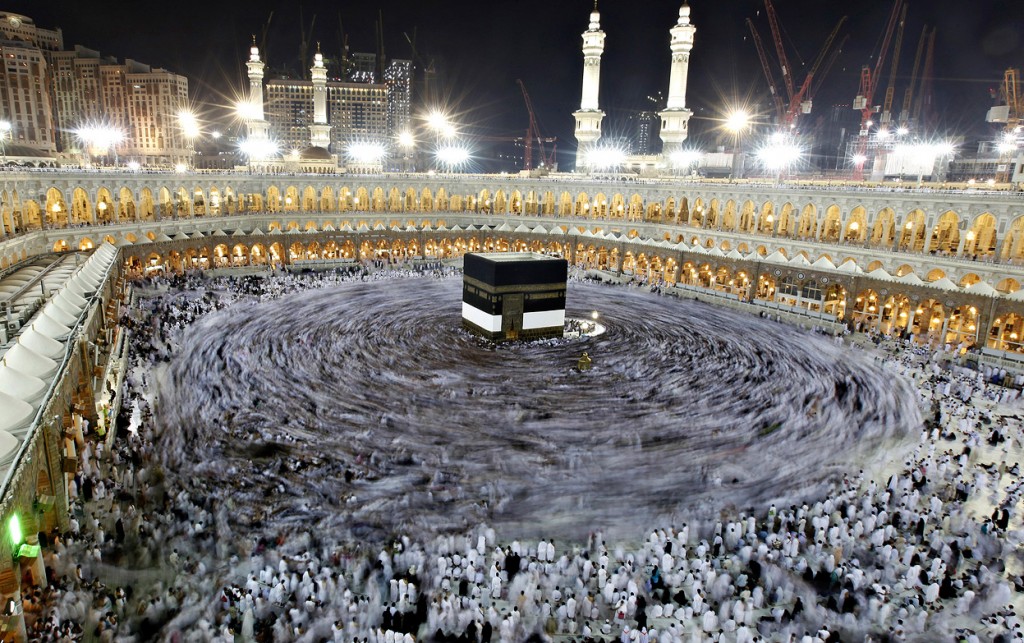The Prophet ﷺ (peace and blessings be upon him) was asked about fasting the day of Arafah and he said, “It will expiate the sins of the previous and upcoming years,” (Muslim).

Many of us are likely looking forward to fasting the day of Arafah due to the immense blessings associated with it, particularly the forgiveness of two years worth of sins. All of the favors relevant to fasting also apply, such as the acceptance of the supplication of a fasting person.
For some people though, they cannot fast. Some may be ill, others might be essential workers during these difficult times, and many more women will be exempt from fasting due to menstruation.
Does that mean that the blessings are lost?
Before going into the specificity of the blessings for the non-fasting, we need to connect to Allah subhanahu wa ta`ala (exalted is He) and turn to Him through His names and attributes, which are revealed to us so we may know Him. Allah (swt) is al-Karim and al-Akram, meaning He is the Most Generous and the Supremely Generous. If a person offers you a gift and tells you to pick it up at 5pm, but because you got off late from work or were stuck in traffic or fell ill and could not not pick up the gift – all these things are outside of your control – one would accept if a fair person denies you that gift because you did not fulfill the conditions for picking it up. A generous human being, however would not deny you the gift at all. They may give you another chance to pick it up, or they may send the gift right to your home because they understand your circumstance.
Allah (swt) is far above any analogy and His generosity far supersedes human generosity. So why do we feel that He would exclude us from such immense blessings when the reason we could not partake in the blessing was outside of our control?
If you had the intention to fast, and you would have fasted were it not for the condition you are in, Allah (swt) rewards you as though you did it! The Prophet ﷺ tells us of a person who has a sincere intention, “and he says: ‘If I had wealth, I would have acted like this person [one who has wealth and spends it in the way of Allah].’ If that is his intention, he will have the same reward as the other,” (Tirmidhi). The Prophet ﷺ also said, “If a servant falls ill or travels, the likes of what he used to do when he was settled and healthy will be recorded for him,” (Bukhari). Finally, the Prophet ﷺ told us, “Whoever intends to perform a good deed but does not (or cannot) do it, Allah will record it as a complete good deed,” (Bukhari). This is all to remind us that Allah (swt) appreciates what you are going through and your love for worshiping Him, and He knows what is in your heart. None of that is wasted, and you are rewarded for your sincere intention as though you completed the deed.
Moreover, the essence of worship is obedience to Him, not to our whims, however noble they might be. If you are not fasting for a prescribed reason, such as menstruation for women, you are rewarded for not fasting because you are obeying Him. How generous is al-Karim: you are spared the hardship of fasting, rewarded for not fasting, and rewarded as though you fasted!
More importantly, our worship should not be limited. Just because we cannot fast, it does not mean we just sit back. These are blessed days regardless of whether we can fast on Arafah or not. The Prophet ﷺ said: “No good deeds are better than what is done in these first ten days of Dhul-Hijjah.” (Bukhari) This includes on the Day of Arafah, which is on the 9th day. We should be constantly remembering and praising Him, because these are days of remembrance. We are told to “… increase in them your declaration of the oneness of Allah, your exaltation of Him, and your praise of Him,” (Ahmad). The The Prophet ﷺ also said, “The best supplication is that which is made on the day of Arafat. The best of it is what was said by myself and the prophets before me: There is no God but Allah alone, without any partners, unto Him belong the dominion and all praise and He has power over all things,” (Tirmidhi).
Specifically with fasting, we are rewarded for feeding a fasting person just as though we ourselves fasted. So, we can support those fasting in our family or community. The Prophet ﷺ said, “Whoever helps break the fast of a fasting person, he will have the same reward as him…” (Tirmidhi).
Finally, it is so important to have hope in the mercy of Allah (swt) and focus on what we can do, rather than lament what we cannot. For those fasting on Arafah, may Allah (swt) accept your fast and worship. For those who cannot, may Allah reward you as though you did and accept your other deeds.

Leave a Comment